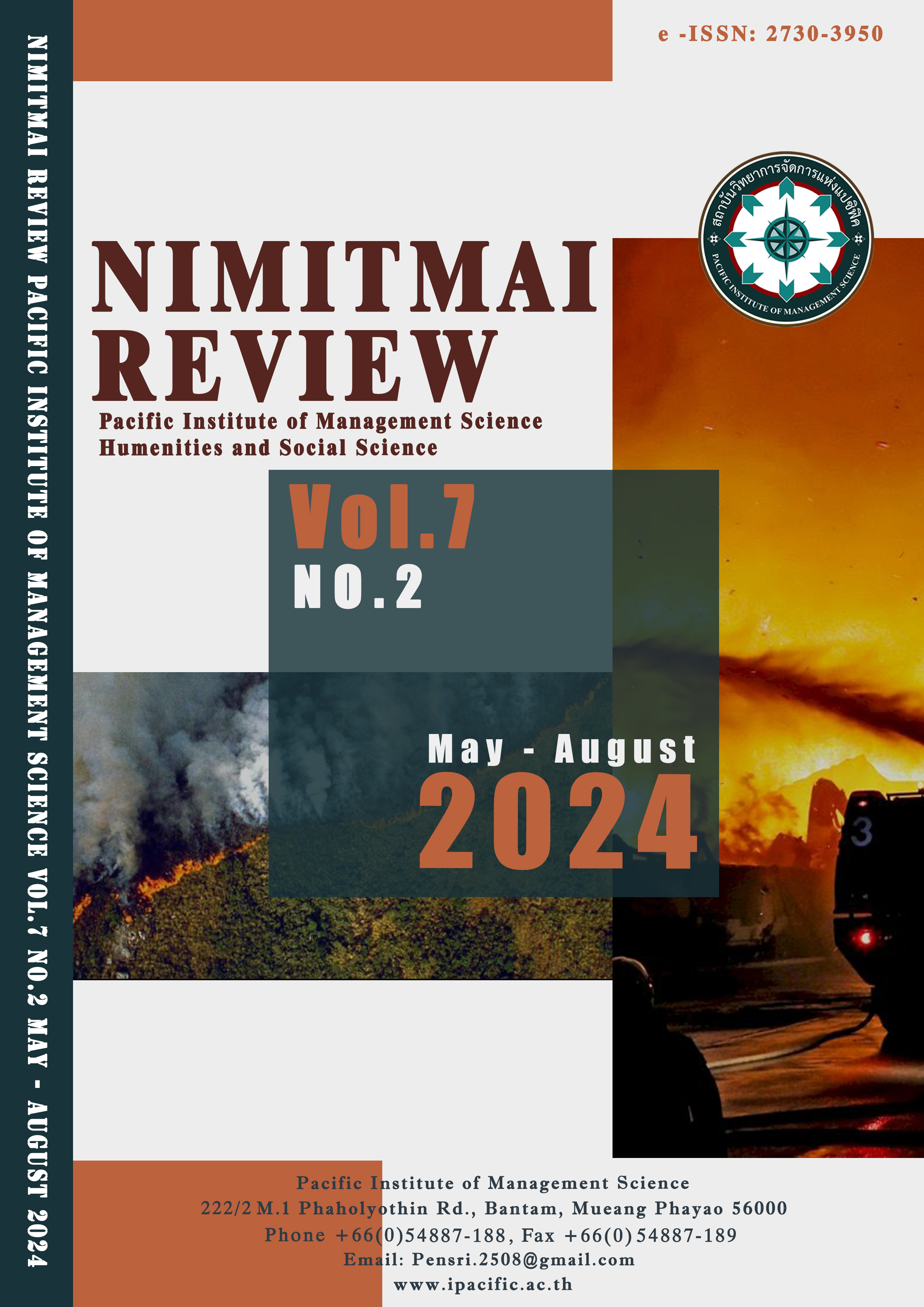The Impact of Social Innovation and Perceived Values Towards Cultural Tourism in Rural Villages in Anhui, China
คำสำคัญ:
social innovation, perceived values, creative tourismบทคัดย่อ
This study investigates the influence of social innovation and perceived values in creative tourism in China. Using a mixed-methods research design, the study focuses on travelers and community leaders in rural areas. The results show significant differences social awareness and innovative collaboration. The study also evaluates the structural validity of a questionnaire using Pearson correlation coefficients and validated factor analyses. The findings have implications for tourism destination growth and policies in rural villages in Anhui, China. Primary contributors to a community's status as a creative tourism include social innovation, value perception, creative tourism, local management, responsible tourism practices, and collaboration with local businesses and stakeholders. Social innovations, involving cooperation and solutions to societal problems, can overcome tipping points in three phases, influencing tourism development by examining characteristics and actors' motivations. This can lead to environmental benefits like resource conservation and reduced carbon emissions. Integrated leadership development with environmentally responsible practices can align businesses with responsible tourism principles and contribute to the overall well-being of their locations. Implementing environmental initiatives can lead to resource conservation and reduced carbon emissions. Integrating leadership development programs with responsible tourism practices aligns operations with local well-being, enhancing reputation and customer loyalty, and attracting top talent. Future research should integrate research and development and operational research to explore creative tourism and agritourism, revealing potential synergies and impacts. This interdisciplinary approach could uncover sustainable development opportunities, community engagement in rural areas, and strategies for economic growth and cultural preservation. This could lead to innovative tourism products and experiences.
เอกสารอ้างอิง
Adamo, G. E., et al (2019). Creativity as a source of differentiation in urban tourism: The case of Torino city. International Journal of Tourism Research, 21(3), 302–310. https://doi.org/10.1002/jtr. 2261.
Albaz, A. et al. (2020). Setting up small and medium‐size enterprises for restart and recovery Retrieved from https://www.mckinsey.com/industries/public‐and‐social‐sector/our‐insights/setting‐up‐small‐and‐medium‐size‐enterprises‐for‐restart‐and recovery
Malek A.& Costa.C. (2015) Integrating communities into tourism planning through social innovation Journal of Tourism Planning & Development
Banerjee, S., & Shabam, A. (2019) "Reimagining Social Enterprise through grassroots social innovations in India", in: Eynaud, P., Laville, J., Santos, L. D., Banerjee, S., Avelino,
Kaletka, H. et al (2018). Atlas of Social Innovation. New Practices for a Better Future. Sozialforschungsstelle, TU Dortmund University.
Klievink, B., & Janssen, M., (2014). "Developing multi-layer information infrastructures: advancing social innovation through public-private governance" "Information Systems Management" 31:240–249
Madanchian, M.& Taherdoost.H. (2017).Role of Leadership in Small and Medium Enterprises (SMEs). International Journal of Economics and Management System, IARAS, 2017.
Mottiar, Z. (2015). The importance of local area as a motivation for cooperation among rural
tourism entrepreneur. Tourism Planning and Development, 12, 1-16.
OECD/Eurostat (2018), Oslo Manual 2018: Guidelines for Collecting, Reporting and Using Data on Innovation, 4th Edition, The Measurement of Scientific, Technological and Innovation Activities, OECD Publishing, Paris/Eurostat, Luxembourg.
Paskova, M. & Zelenka, J. (2019), "How crucial is the social responsibility for tourism sustainability?", Social Responsibility Journal, Vol. 15 No. 4, pp. 534- 552. https://doi.org/10.1108/SRJ-03-2018-0057
Ratten, V. (2020). (a). Coronavirus and international business: An entrepreneurial ecosystem perspective. Thunderbird International Business Review, 62(5), 629–634. [Google Scholar]
UNESCO. (2016).Tourism,culture and sustainable development. [Online].Availablehttp://unesdoc.unesco.org/images/0014/001475/147578E.pdf
ดาวน์โหลด
เผยแพร่แล้ว
รูปแบบการอ้างอิง
ฉบับ
ประเภทบทความ
สัญญาอนุญาต
ลิขสิทธิ์ (c) 2024 Nimitmai Review Journal

อนุญาตภายใต้เงื่อนไข Creative Commons Attribution-NonCommercial-NoDerivatives 4.0 International License.



